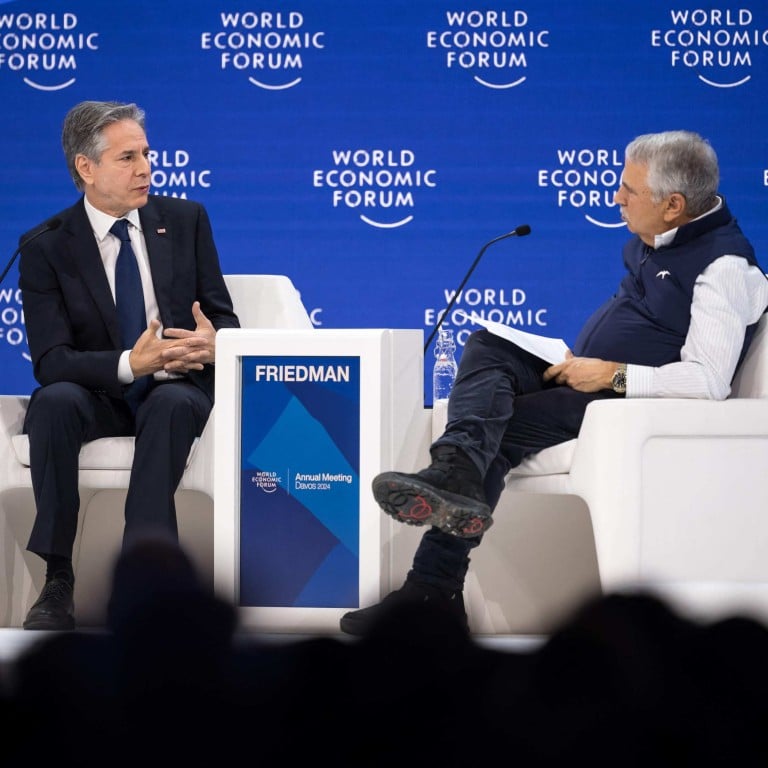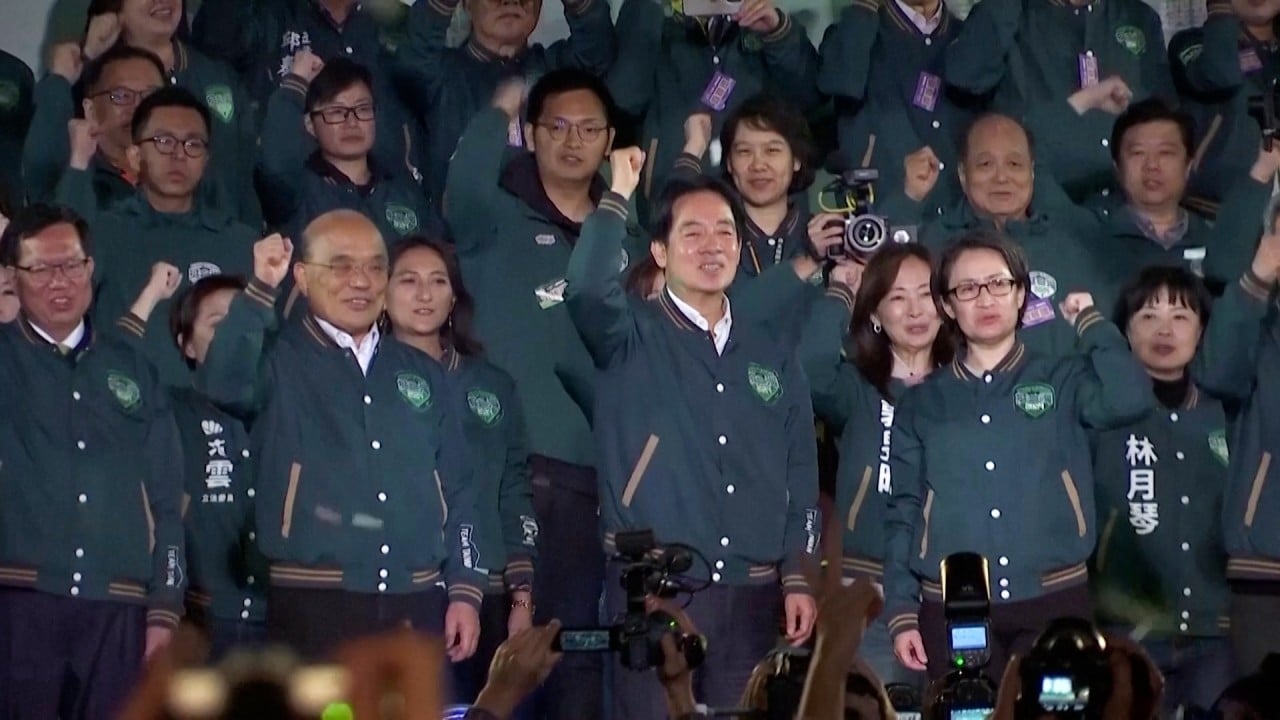
Expect more US-China engagement this year despite ‘differences’ and ‘intense competition’: Antony Blinken
- In interview at World Economic Forum in Davos, top American diplomat says the two powers are committed to collaborating in areas of ‘mutual interest’
- He says Washington is committed to maintaining status quo in Taiwan and warns against ‘disruptive’ moves such as ‘the use of force’
He also said the US was committed to ensuring the status quo in Taiwan remained unchanged and warned against “disruptive” moves such as “the use of force”.
China-US relations: sides convey serious intent amid celebration of ties
“And that’s actually one of the hallmarks of the success of the relationship between the United States and China, since the establishment of diplomatic relations has actually been the management of the Taiwan issue.”
Beijing has warned that any separatist moves would be “harshly punished” following the DPP’s victory on Saturday.
Beijing sees Taiwan as part of China to be reunited by force if necessary. Most countries, including the US, do not recognise Taiwan as an independent state, but Washington is opposed to any attempt to take the self-governed island by force and is committed to supplying it with weapons.
Blinken congratulated Lai on his victory, saying it showed the strength of Taiwan’s “robust democratic system”.
US President Joe Biden said Washington did not support Taiwan independence when asked to comment on the island’s election on Saturday.
But there have not been any breakthroughs on the most contentious issues, including Taiwan, the South China Sea and US tech restrictions against China.
China’s strength gap with the US will grow, not shrink: top political scientist
Blinken said there would be more engagement between the two countries – including between their leaders – in the coming year.
“You’ll see more of that in the year ahead. But not only for purposes of stabilising the relationship, but to do two other things,” he said.
The first is “to make sure that we’re dealing very directly, very clearly with our differences so that there’s no misunderstanding about where we’re coming from,” he said.
“Second, to see if despite these differences, despite the intense competition, there are also places where it’s in our mutual interest to cooperate more.”
White House national security adviser Jake Sullivan, who spoke at the World Economic Forum on Tuesday, said the US was competing with China “across multiple dimensions” but was seeking to manage that competition responsibly and intensifying diplomacy to reduce the risk of miscalculation.
Sullivan said that in addition to resuming military dialogues, the two sides were working on establishing new communications.
“Together, the US and China will launch a new dialogue aimed at minimising and managing the risks of artificial intelligence,” he said.

 - Kawala Xie.jpg?itok=NogZcyZ-&v=1661304068)
